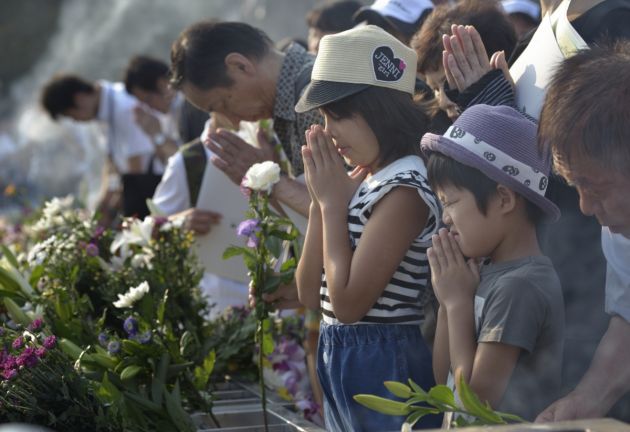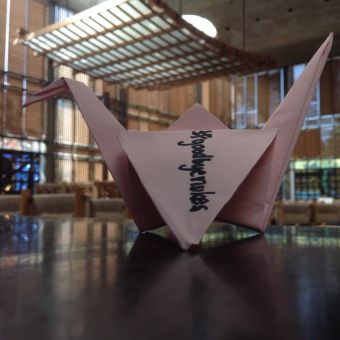Japan marks 70 years since atomic bombings; church leaders act to halt nuclear weapons

People from all around the world in the Japanese city of Hiroshima have commemorated the 70th anniversary of the first atomic bomb being dropped on a city, by a U.S. aircraft during World War II.
Christian and other faith leaders had a strong presence at the commemoration of the bombing, leading a campaign for nuclear disarmament that political leaders in many countries support.
Japanese Prime Minister Shinzo Abe attended a ceremony at Hiroshima's memorial park before thousands of lanterns were released on the city's Motoyasu River, the BBC reported.
After the nuclear bombings that are believed to have led to the deaths of around 150,000 in Hiroshima and 75,000 in Nagasaki, but were preceded by fire-bombings of all Japanese main cities beforehand, Japan surrendered.
Japan's surrender brought an end to World War II, but was followed by a nuclear arms race through the Cold War in the second part of the 20th century.
Abe addressed 40,000 people who attended the commemoration ceremony near the epicenter of the 1945 attack and called for worldwide nuclear disarmament.
Abe said that that atomic bomb not only killed thousands of people in Hiroshima but also caused unspeakable suffering to survivors.
HIROSHIMA REVIVED
"Today Hiroshima has been revived," the prime minister said, "and has become a city of culture and prosperity.
"Seventy years on I want to reemphasise the necessity of world peace."
A U.S. B-29 bomber called the Enola Gay dropped the uranium bomb, exploding around 600 meter (1,800ft) above the industrial city, at around 08:10 on August 6, 1945.

Three days later Nagasaki was bombed with a nuclear weapon.
"We stand in awe of the nuclear destruction wrought by the bombings of Hiroshima and Nagasaki, and the suffering endured by the victims," said World Council of Churches general secretary Rev. Olav Fykse Tveit.
"We resolve to continue to press mightily for the outlawing and elimination of these weapons.
"The members of our delegation represent the whole fellowship of churches in the WCC, working and praying for a world without nuclear weapons."
His call was supported by Rev. Sang Chang, WCC president for Asia in an address to the Nuclear Disarmament Symposium held in Hiroshima, August 6.
"Religious leaders must provide leadership. People of faith from every walk of life must take action," said Chang.
"Nuclear disarmament now – on the 70th anniversary of the atomic bombings – requires us to focus faith, ethics and morality on the need for an urgent new international law. That law is a legal ban on nuclear weapons, achieved with the widest possible international backing."
Chang, from the Presbyterian Church in the Republic of Korea, was speaking at the event's session titled "Actions for Nuclear Disarmament Hereafter: War Never Again."
